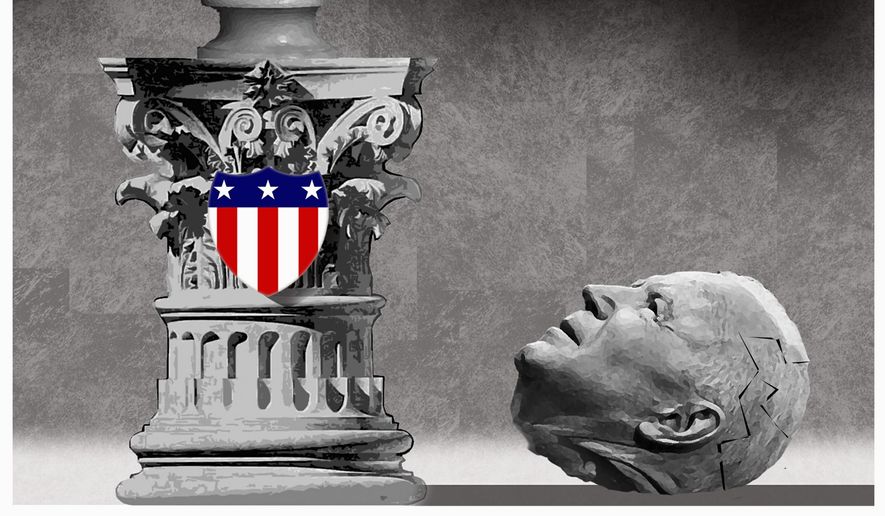OPINION:
A few hours after the bombing of a checkpoint at Hamid Karzai International Airport in Kabul last Thursday, President Biden presided over his version of a press conference. He gave a few mostly rambling remarks. He equated the sudden, violent, and unexpected deaths of United States Marines, which happened as an immediate consequence of his decisions, with his son’s slow, unfortunate death from cancer at home surrounded by family.
He noted that the United States allowed the Taliban to man the outer perimeter at the airport because we have an identity of interests – neither of us like ISIS – while avoiding the very much related point that the Taliban and ISIS have a much greater identity of interests; namely, they are constructed around their hate for the great infidel United States.
He admitted to helping the Taliban by giving them a list of names of those who had helped Americans over the last 20 years. No point in prolonging the uncertainty about whom to kill, I suppose.
Finally, and most interestingly, he promised to hunt down those responsible for the deaths of the Marines and Afghan civilians. Leaving aside the very real possibility that such a promise may wind up being as fruitful as OJ Simpson’s ongoing search for the real killers of his wife, it occurred to me that at least some of responsibility for the attack must be assigned to Americans and our own broken policy and electoral systems.
During the Cold War, when the voting population’s focus was sharp for the possibility of either nuclear war or, worse, Russian domination of the planet, this nation elected a series of competent, if unspectacular, presidents. After the communists in Russia were mostly dispatched (Russia’s GDP is smaller than Canada’s; we should start ignoring them as we do our neighbors to the north), that changed.
Voters, no longer encumbered by great power rivalry, have elected entertainers, novelty items, disruptors, or, in the case of the current occupant, grandfathers to tell us bedtime stories. What we have not elected are competent leaders who can successfully manage situations like Afghanistan.
The president who conquered Afghanistan seemed uncertain what to do with it once he had obtained it. Unsatisfied with simply installing a reliable client state, he settled on the highly dubious proposition of building a lego democracy. It, of course, failed.
Americans are bad at running empires. We don’t have the physical or emotional infrastructure to impose our will on people across generations. The British had a smug sense of superiority and superb legal and educational systems. Their former colonies (including the United States) should be grateful they were British colonies. The Spanish had religious fervor, and the Jesuits. The United States has a military and little else except an abiding preference to be left alone on our continent.
This brings us back to the current president. Americans voted for this man, many knowing full well he was incapable of doing the job. But most assumed that there was little harm in electing a president of limited physical and mental capacity; it’s not like we are in the middle of an international contest for hearts, minds, and territory with a dangerous and capable adversary (unless you count China). Besides, the previous occupant was so annoying and mean.
The problem of representative government is that you tend to get the government you deserve. It is time for the voters to refocus themselves on the risks and the tasks at hand. Next time you vote for a president, vote as if the lives of our soldiers and Marines depend on it. Because they do.
As Cassius noted to Brutus under not completely dissimilar circumstances, “The fault, dear Brutus, is not in our stars, but in ourselves.”
• Michael McKenna, a columnist for The Washington Times, is the president of MWR Strategies. He was most recently a deputy assistant to President Trump and deputy director of the Office of Legislative Affairs at the White House.




Please read our comment policy before commenting.